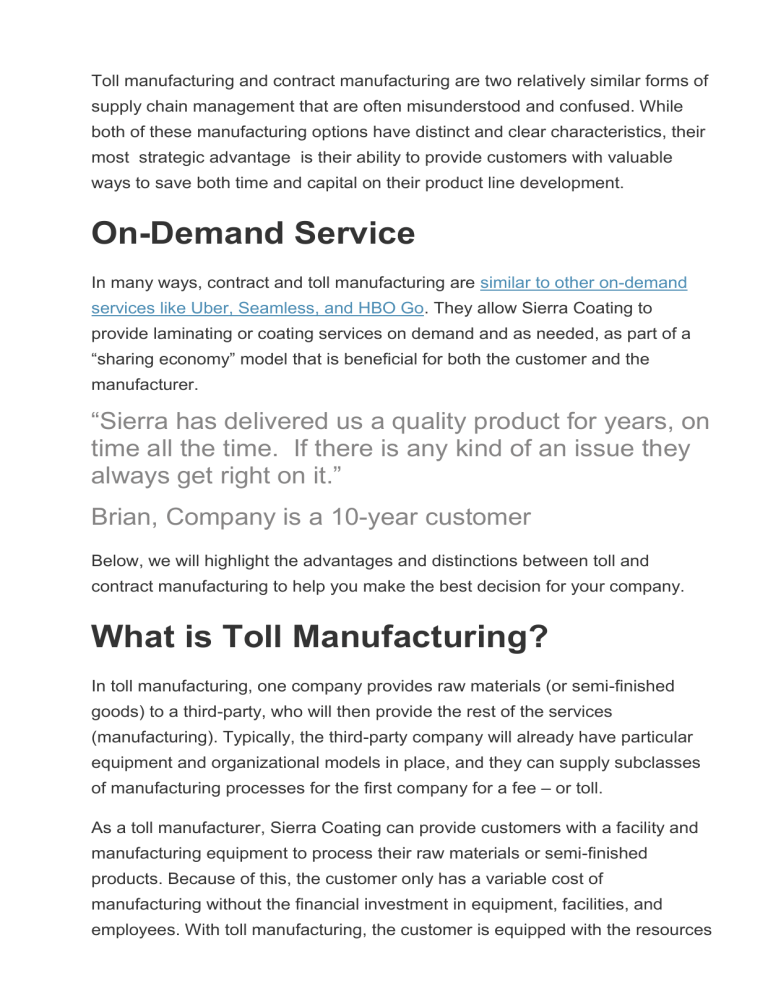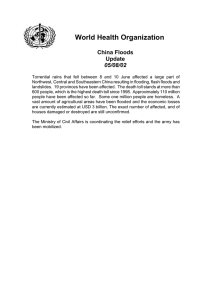
Toll manufacturing and contract manufacturing are two relatively similar forms of supply chain management that are often misunderstood and confused. While both of these manufacturing options have distinct and clear characteristics, their most strategic advantage is their ability to provide customers with valuable ways to save both time and capital on their product line development. On-Demand Service In many ways, contract and toll manufacturing are similar to other on-demand services like Uber, Seamless, and HBO Go. They allow Sierra Coating to provide laminating or coating services on demand and as needed, as part of a “sharing economy” model that is beneficial for both the customer and the manufacturer. “Sierra has delivered us a quality product for years, on time all the time. If there is any kind of an issue they always get right on it.” Brian, Company is a 10-year customer Below, we will highlight the advantages and distinctions between toll and contract manufacturing to help you make the best decision for your company. What is Toll Manufacturing? In toll manufacturing, one company provides raw materials (or semi-finished goods) to a third-party, who will then provide the rest of the services (manufacturing). Typically, the third-party company will already have particular equipment and organizational models in place, and they can supply subclasses of manufacturing processes for the first company for a fee – or toll. As a toll manufacturer, Sierra Coating can provide customers with a facility and manufacturing equipment to process their raw materials or semi-finished products. Because of this, the customer only has a variable cost of manufacturing without the financial investment in equipment, facilities, and employees. With toll manufacturing, the customer is equipped with the resources to develop their own specialty coatings or papers that Sierra Coating can use in the manufacturing process. Subsequently, the customer is able to develop the exact product they envision, without the time and capital investment of building a manufacturing operation. This significantly decreases the time required to get the product to market, as lead times for ordering and installing new machinery are eliminated. At Sierra Coating, customers are able to supply one or more of the raw materials needed for production or, if the customer prefers, the Sierra Coating team can supply the materials. Key Differences with Contract Manufacturing Though contract manufacturing is similar to toll manufacturing, there are some key differences between the two. Similar to toll manufacturing, contract manufacturing involves outsourcing production processes to a third-party company. In contract manufacturing, however, the third-party company hired to produce the goods is supplying the manufacturing process as well as sourcing all of the raw materials. Contract manufacturing is creating a supply chain vendor for a branded, private label or custom-made product. The contract manufacturer is responsible for making the product to specification and meeting the delivery time requirements. This offers the customer a fast and effective method of extending their product line with minimal investment and a made-toorder supply program.
